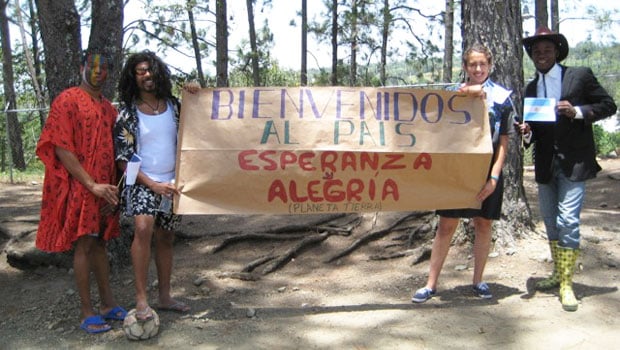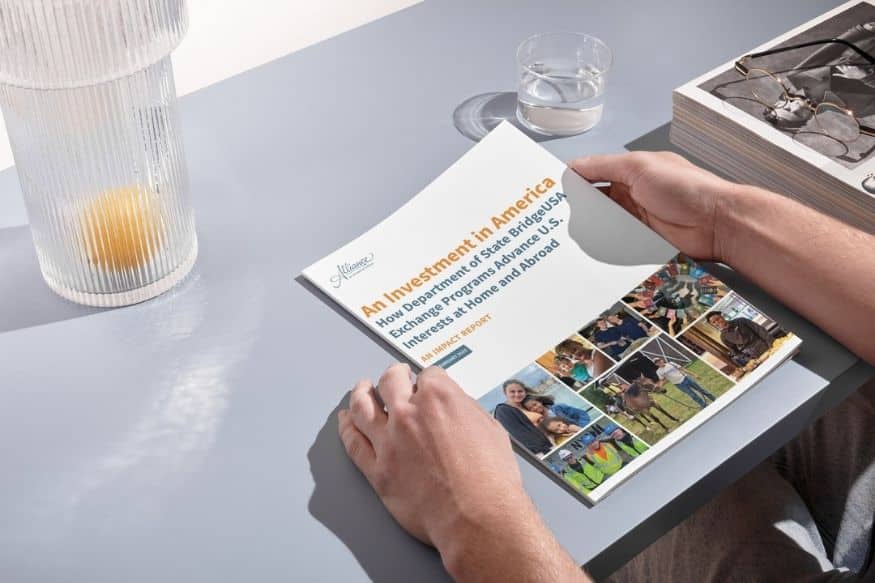
Image courtesy of Gabriella.
It is hard to believe that the coming of the New Year also signifies that my time in La Romana is almost halfway finished. However, I know this is just the beginning of my relationships with my Dominican family and friends. This has been an incredible first few months with memories I will carry with me forever: from the staff Christmas party and Sunday lunches at my “Mama Haitiana’s” home, to becoming the Clinic’s special event photographer in my spare time. I have had the privilege of having a wide array of experiences.
The main project that I have been working on is the evaluation of Campamento Esperanza y Alegría. From my analysis and conversations with staff members, the top priority that emerged was the need to re-establish the connection between the camp director and the parents and guardians of our campers. Consequently, I am helping to create focus group guides for the camp to implement with their families. The results from our focus groups will provide a continual feedback loop and create dialogue between caretakers and camp staff in order to improve the camp’s services and monitor the progress of the campers.
Through this work with camp and my first few weeks of rotations at clinic, I realized that I truly enjoy our pediatric department and our adolescent mothers’ groups. I have been able to continue to work with the pediatric population, focusing on pediatric nutrition. Some of our HIV pediatric patients are severely malnourished and have entered into our nutrition program. This malnutrition leads to great difficulties when having to undergo such strong antiretroviral treatments. This issue of malnutrition has been a continual problem. Through many collaborative and brainstorming sessions with our Social Services department as well as our pediatrician, I am working on creating a proposal to present to our clinic for an HIV nutrition support group for the enrolled children in our program and their caretakers. We hope that hearing the success stories of other children who have improved in their nutrition spectrum will provide an opportunity for encouragement and accountability for these families. As clinic providers we can say you need to take these steps to improve your child’s nutrition, but hearing the stories from their peers gives more validity and cultural sensitivity to our recommendations.
In these months, I have learned so much about creating educational tools that are appropriate and culturally relevant to your population and learning the Dominican style of work, which involves a lot of meetings, laughs, and open/free expression of our feelings.
In addition to working with the pediatric department at Clínica de Familia, I have also been able to get to know the staff at the Materno Annexo Modelo Infantil (MAMI), a branch of the clinic that partners with our public health hospital and serves adolescent mothers and newborns. The project at MAMI that I have been most excited about is the unveiling of our new Toxic Stress educational materials. Through these materials, we are teaching new mothers how to create a healthier and safer environment to promote the brain development of their child, using the secure attachment between mother and child to combat the negative stressors in their environment. In this project I partnered with the MAMI clinic educator in order to create and pilot health talks, brochures, and activities to use in the mothers’ groups as wells as in the pediatric waiting room. With some of these same mothers, I have also had the privilege to walk alongside them as they began their pregnancy process through our “Adolescents in Action” group. This group takes eleven pregnant young mothers and helps them through their monthly checkups as well as offers a question and answer session with our clinic community educator.
It has been amazing to see how one initial project, piloting an evaluation system for our HIV youth camp, has opened the door for me to continue to work with these campers as well as other adolescents in our clinic. In these months, I have learned so much about creating educational tools that are appropriate and culturally relevant to your population and learning the Dominican style of work, which involves a lot of meetings, laughs, and open/free expression of our feelings. The generosity and the familiarity of my friends here has been astonishing. I am learning from them what it means to truly give. I am looking forward to seeing how these projects continue to develop and the many life lessons that I will learn from my family here in la República Dominicana.




